On April 2, 2021, THE 2021 OSCAR NOMINATED SHORT FILMS will be available in over 200 screens across 50+ theatrical markets including New York and Los Angeles and due to theaters being directly affected by the COVID-19 pandemic, through virtual cinematic releases with a portion of proceeds benefiting the local theaters that are unable to be open during the release. To learn more about the participating theaters (in-person and virtually) and how to purchase tickets, please visit https://tickets.oscar-shorts.com/. This is the only opportunity for audiences to watch the short film nominees in theaters before the Academy Awards ceremony on Sunday, April 25, 2021. Each nominee is released in one of three distinct feature-length compilations according to their category of nomination: Live Action, Animation, or Documentary.
The Live Action Short nominees are:
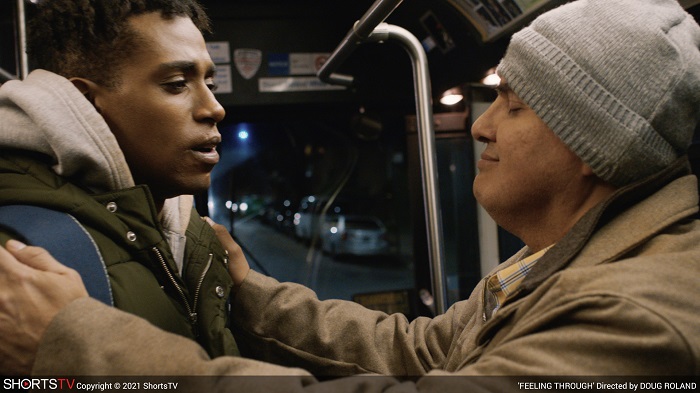
Feeling Through (director Doug Roland, USA, 19 min) – Tareek (Steven Prescod), a young homeless man on the streets of NYC, forms a deep, brief bond with Artie (Robert Tarango), a blind and deaf man who is looking for a bus home. What seems like a burden provides a moment of purpose and a lesson about community. Prescod gives a nuanced performance and is an actor to watch out for.
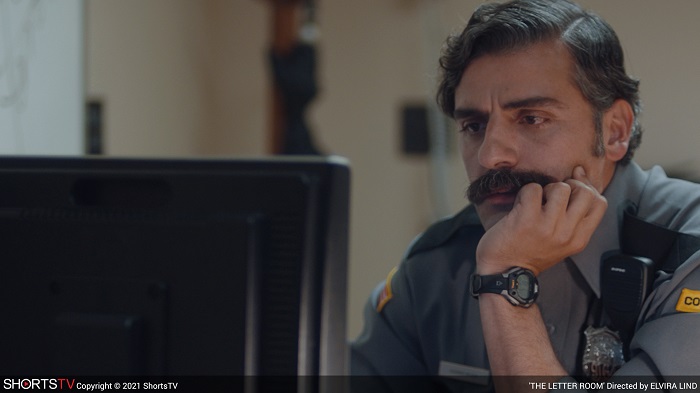
The Letter Room (director Elvira Lind, USA, 33 min) – A correctional officer (Oscar Isaac) is put in charge of communications for the prisoners, which means he reads, censors, and confiscates all incoming and outgoing mail. He starts to live vicariously through the love letters a death row inmate receives but doesn’t respond to. When the writer (Alia Martine Shawka) threatens suicide, the officer decides to make contact. The plot takes an intriguing turn that has an impact on the officer. It’s a shame a tripod wasn’t used for the key scene between the officer and the woman as the shaky camera work was distracting.
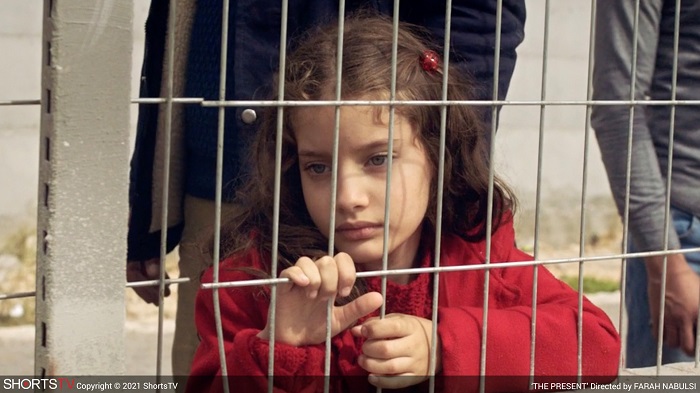
The Present (director Farah Nabulsi, Palestine, 25 min) – Yusef, a Palestinian man, and his daughter go to the West Bank to shop for his wedding anniversary and run into trouble at different check points. It’s clear life would be so much easier if the Israeli soldiers treated Yusef as an equal. The viewer will sympathize with Yusef’s plight, but there’s no indication why the soldiers behave the way they do. Making them villains for the sake of the plot diminishes the film.
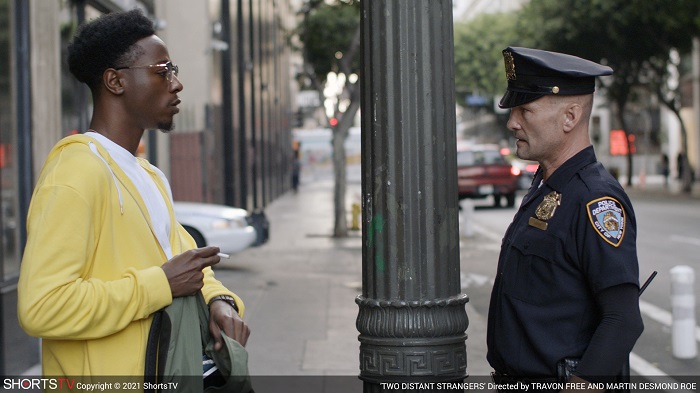
Two Distant Strangers (Travon Free, Martin Desmond Roe, USA, 29 min) – After having spent the night at a young lady’s apartment, cartoonist Carter James, a young African American man, gets in an encounter outside her apartment with a police officer and is killed. He wakes up to find himself experiencing a Groundhog Day time loop, and no matter what he does different it always ends with the police killing him. Meant to be a metaphor for the Black experience in the United States, and to make sure that’s clear, a list of victims of those killed by police, the story is diminished by the writers making the cop a generic villain with no understandable motivation rather than a character as as nuanced as Carter. This choice diminishes the film.
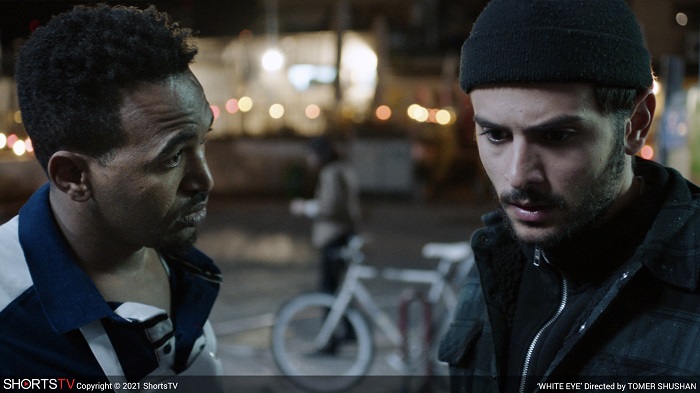
White Eye (Tomer Shushan, Israel, 21 min) – Omer finds his stolen bicycle chained outside a factory. An Ertiean immigarnt claims he bought it at a bus stop and now uses it to take his daughter to school. When Omer gets the police involved, matters get taken farther than he had intended. Omer has a change of heart about what’s taken place but it’s too little too late. This makes his final act pointless as everyone loses, undercutting why he was so adamant to begin with. Kudos to the cast and crew who shot this in what looks like one take.
All are worthy winners, but the film that would get my vote is Feeling Through. While The Present, Two Distant Strangers, White Eye all feel of the moment with their poignant stories, there’s a universality and a timelessness of Feeling Through‘s theme.